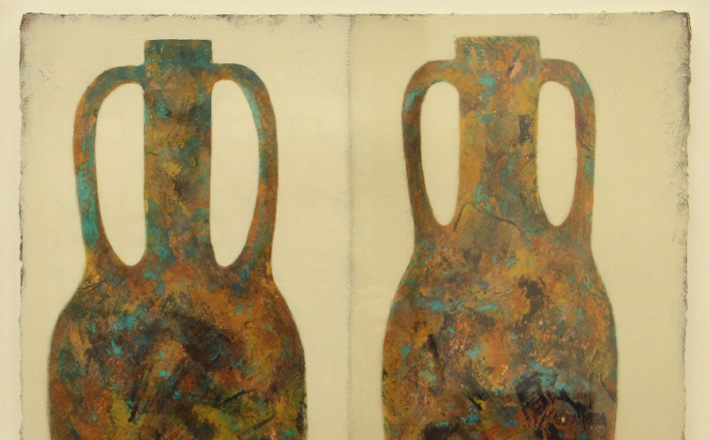Commentary on Philippians 3:4b-14
This passage invites us to reflect on what we value most.
A recent Reuters poll reveals that Americans value “time” first, with “career,” “success,” and “money” coming in as close seconds for certain groups of people. What we value most is likely demonstrated by how we spend our time and how we spend our resources.
At one point, the apostle Paul spent all his time and resources pursuing and persecuting Christians, establishing a successful career as a devout Pharisee. When he writes the letter to the Philippians, he has changed course so that he now spends all his time and resources pursuing Christ. His career success appears to be in shambles because he lands in prison for the sake of Christ.
However, what looks like a failed career contributes to the fulfillment of Paul’s calling as a minister to the Gentiles because he is able to communicate the gospel to the prison guards (2:12-18). Paul’s change of course demonstrates what he values most.
In our text, Paul argues against valuing the “flesh,” or what he calls “confidence in the flesh” (3:4b). Fitting our passage in context helps us to see what he means by this. Chapter 3 opens with Paul’s warning against false teachers who insist that a person must be circumcised in order to be a bona fide member of God’s people (verses 1-3). In other words, they insisted that a person must become a Jew in order to become a Christian. Their religion is directed by external rituals.
By contrast, Paul speaks of religion that is directed by the Spirit of God (verse 3). The point is not that external rituals are wrong, but that without the Spirit’s generating work, they are fruitless. Circumcision was a sign and seal of the covenant, but it was meant to point to an inward reality, the circumcision of the heart (see Deuteronomy 10:16; Jeremiah 4:4; Ezekiel 44:7). It appears that these teachers have lost sight of what circumcision of the flesh signifies. When Paul writes about confidence in the flesh, he means valuing circumcision and other exterior rituals most.
To illustrate the confidence in the flesh against which he speaks, Paul uses himself as a negative example. He has more reason to boast in the flesh than anyone (4b), and lists seven advantages he could claim (verses 5-6). The first four advantages are inherited:
1) He is a full member of God’s covenant people (“circumcised on the eighth day”),
2) He is an Israelite by birth with all the rights and privileges that adhere (“a member of the people of Israel”),
3) He hails from one of the two tribes (Benjamin and Joseph) considered to be faithful to the covenant (“of the tribe of Benjamin”),
4) He is the son of Hebrew parents with no Gentile contamination, that is, he is not a “mud-blood” (“a Hebrew born of Hebrews”).
The last three are achievements:
5) He practices strict observance of the law (“a Pharisee of Pharisees”)
6) He exhibits avid devotion to God (“as to zeal, a persecutor of the church”)
7) He is above reproach according to a Pharisaic interpretation of the law (“as to righteousness under the law, blameless”).
Then Paul makes a big contrast with a little word: “But” (verse 7). He contrasts his old mindset and actions (verses 4-5) with new ones (verses 7-9), using the language of accounting (“gain” and “loss”). The end of a profit and loss statement shows the net loss or net income, indicating the extent to which a business, craft, or household is profitable.
Paul understands profitable living in the household of God terms of “attaining to the resurrection of the dead” (verses 11; see also 12, 14). In order to make a profit, he counts all his external advantages as “loss” and counts knowing Christ as “gain.” Earlier, Paul had written about giving up all rights and privileges for the sake of others (2:1-4). Now he speaks about giving up all rights and privileges for the sake of knowing Christ (verse 10).
Paul values knowing Christ because he has come to see that only in union with Christ, and not on account of his natural qualities or achievements, may he stand before God. Paul wants to be “found” in Christ. This is language of final judgment, when a person’s life is disclosed before his maker (see also 2 Peter 3:10, 14). Paul contrasts two kinds of righteousness for this disclosure: “having a righteousness of my own that comes from the law” versus “one that comes through faith in Christ” (verse 9).
He has described the righteousness from the law in verses 5-6. By contrast, the righteousness through faith in Christ likely refers to Jesus’ obedient death on the cross. Grammatically, the phrase translated “faith in Christ” may also be translated “the faithfulness of Christ.” This alternate translation makes the best sense of the contrast that Paul sets up: not the law versus human faith; but the law (its works do not give life) versus Jesus’ obedient death (by his work, he gives life; see also Romans 8:1-4).
Paul mixes accounting imagery with athletic imagery in order to portray the extent to which he values Christ. In verse 12, he says that he has not already obtained “all this,” probably referring to the full knowledge of Christ and the resurrection of the dead that is his ultimate goal. Because his values have changed, he exerts the energy with which he would strain to win a race into the pursuit of Christ. He does this by forgetting what lies behind (all those privileges and achievements he mentions in verses 5-6) and by straining forward to what lies ahead (sharing in Christ’s resurrection).
In light of this text, we may reflect on what we value most as individuals and as church communities. Perhaps we tend to value certain inherited qualities or achievements as “gains” that give us value before God. Lent is a time for examining our lives and our faith, so that we may count such gains as loss and deepen our reliance upon Jesus Christ.


March 17, 2013